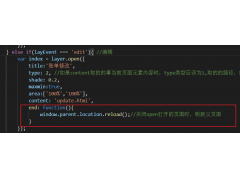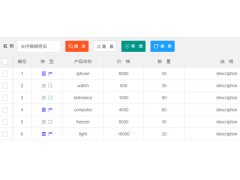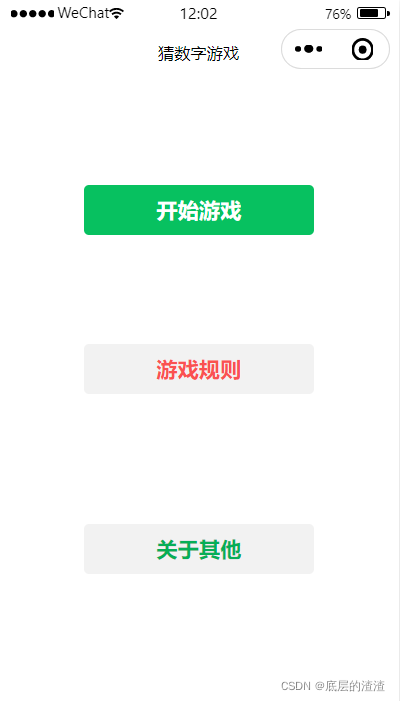Rounded corners on chartJS v.2 - bar charts (with negative values)(chartJS v.2 上的圆角 - 条形图(带负值))
问题描述
我正在设计一些 chartjs 条形图,这些条形图需要在条形的值(不是它们的底部)处有圆角,在大多数情况下,这意味着条形顶部的圆角,但是也有一些条形具有负值的情况.
我在这里使用了答案:
I'm styling some chartjs bar charts which need rounded corners at the bar's values (not their base), In most cases this means rounded corners at the top of the bar's however there are also instances where the bars have negative values.
I've used the answer here: How to create rounded bars for Bar Chart.js v2? provided by jordanwillis (https://stackoverflow.com/users/7581592/jordanwillis) which works great when values are positive but not when values are negative.
See attached example: bars with negative values get inverted corners
I need to update the extension so that the quadraticCurves's in canvas calculate correctly for negatives.
I also faced the same issue. use below code for rounded corners-
Chart.elements.Rectangle.prototype.draw = function () {
var ctx = this._chart.ctx;
var vm = this._view;
var left, right, top, bottom, signX, signY, borderSkipped, radius;
var borderWidth = vm.borderWidth;
// Set Radius Here
// If radius is large enough to cause drawing errors a max radius is imposed
var cornerRadius = 20;
if (!vm.horizontal) {
// bar
left = vm.x - vm.width / 2;
right = vm.x + vm.width / 2;
top = vm.y;
bottom = vm.base;
signX = 1;
signY = bottom > top ? 1 : -1;
borderSkipped = vm.borderSkipped || 'bottom';
} else {
// horizontal bar
left = vm.base;
right = vm.x;
top = vm.y - vm.height / 2;
bottom = vm.y + vm.height / 2;
signX = right > left ? 1 : -1;
signY = 1;
borderSkipped = vm.borderSkipped || 'left';
}
// Canvas doesn't allow us to stroke inside the width so we can
// adjust the sizes to fit if we're setting a stroke on the line
if (borderWidth) {
// borderWidth shold be less than bar width and bar height.
var barSize = Math.min(Math.abs(left - right), Math.abs(top - bottom));
borderWidth = borderWidth > barSize ? barSize : borderWidth;
var halfStroke = borderWidth / 2;
// Adjust borderWidth when bar top position is near vm.base(zero).
var borderLeft = left + (borderSkipped !== 'left' ? halfStroke * signX : 0);
var borderRight = right + (borderSkipped !== 'right' ? -halfStroke * signX : 0);
var borderTop = top + (borderSkipped !== 'top' ? halfStroke * signY : 0);
var borderBottom = bottom + (borderSkipped !== 'bottom' ? -halfStroke * signY : 0);
// not become a vertical line?
if (borderLeft !== borderRight) {
top = borderTop;
bottom = borderBottom;
}
// not become a horizontal line?
if (borderTop !== borderBottom) {
left = borderLeft;
right = borderRight;
}
}
ctx.beginPath();
ctx.fillStyle = vm.backgroundColor;
ctx.strokeStyle = vm.borderColor;
ctx.lineWidth = borderWidth;
// Corner points, from bottom-left to bottom-right clockwise
// | 1 2 |
// | 0 3 |
var corners = [
[left, bottom],
[left, top],
[right, top],
[right, bottom]
];
// Find first (starting) corner with fallback to 'bottom'
var borders = ['bottom', 'left', 'top', 'right'];
var startCorner = borders.indexOf(borderSkipped, 0);
if (startCorner === -1) {
startCorner = 0;
}
function cornerAt(index) {
return corners[(startCorner + index) % 4];
}
// Draw rectangle from 'startCorner'
var corner = cornerAt(0);
var width, height, x, y, nextCorner, nextCornerId
var x_tl, x_tr, y_tl, y_tr;
var x_bl, x_br, y_bl, y_br;
ctx.moveTo(corner[0], corner[1]);
for (var i = 1; i < 4; i++) {
corner = cornerAt(i);
nextCornerId = i + 1;
if (nextCornerId == 4) {
nextCornerId = 0
}
nextCorner = cornerAt(nextCornerId);
width = corners[2][0] - corners[1][0];
height = corners[0][1] - corners[1][1];
x = corners[1][0];
y = corners[1][1];
radius = cornerRadius;
// Fix radius being too large
if (radius > Math.abs(height) / 2) {
radius = Math.floor(Math.abs(height) / 2);
}
if (radius > Math.abs(width) / 2) {
radius = Math.floor(Math.abs(width) / 2);
}
if (height < 0) {
// Negative values in a standard bar chart
x_tl = x; x_tr = x + width;
y_tl = y + height; y_tr = y + height;
x_bl = x; x_br = x + width;
y_bl = y; y_br = y;
// Draw
ctx.moveTo(x_bl + radius, y_bl);
ctx.lineTo(x_br - radius, y_br);
ctx.quadraticCurveTo(x_br, y_br, x_br, y_br - radius);
ctx.lineTo(x_tr, y_tr + radius);
ctx.quadraticCurveTo(x_tr, y_tr, x_tr - radius, y_tr);
ctx.lineTo(x_tl + radius, y_tl);
ctx.quadraticCurveTo(x_tl, y_tl, x_tl, y_tl + radius);
ctx.lineTo(x_bl, y_bl - radius);
ctx.quadraticCurveTo(x_bl, y_bl, x_bl + radius, y_bl);
} else if (width < 0) {
// Negative values in a horizontal bar chart
x_tl = x + width; x_tr = x;
y_tl = y; y_tr = y;
x_bl = x + width; x_br = x;
y_bl = y + height; y_br = y + height;
// Draw
ctx.moveTo(x_bl + radius, y_bl);
ctx.lineTo(x_br - radius, y_br);
ctx.quadraticCurveTo(x_br, y_br, x_br, y_br - radius);
ctx.lineTo(x_tr, y_tr + radius);
ctx.quadraticCurveTo(x_tr, y_tr, x_tr - radius, y_tr);
ctx.lineTo(x_tl + radius, y_tl);
ctx.quadraticCurveTo(x_tl, y_tl, x_tl, y_tl + radius);
ctx.lineTo(x_bl, y_bl - radius);
ctx.quadraticCurveTo(x_bl, y_bl, x_bl + radius, y_bl);
} else {
//Positive Value
ctx.moveTo(x + radius, y);
ctx.lineTo(x + width - radius, y);
ctx.quadraticCurveTo(x + width, y, x + width, y + radius);
ctx.lineTo(x + width, y + height - radius);
ctx.quadraticCurveTo(x + width, y + height, x + width - radius, y + height);
ctx.lineTo(x + radius, y + height);
ctx.quadraticCurveTo(x, y + height, x, y + height - radius);
ctx.lineTo(x, y + radius);
ctx.quadraticCurveTo(x, y, x + radius, y);
}
}
ctx.fill();
if (borderWidth) {
ctx.stroke();
}
};
I used it for horizontal bar chart. It will draw the chart like below image-
这篇关于chartJS v.2 上的圆角 - 条形图(带负值)的文章就介绍到这了,希望我们推荐的答案对大家有所帮助,也希望大家多多支持编程学习网!
本文标题为:chartJS v.2 上的圆角 - 条形图(带负值)


基础教程推荐
- 什么是不使用 jQuery 的经验技术原因? 2022-01-01
- WatchKit 支持 html 吗?有没有像 UIWebview 这样的控制器? 2022-01-01
- jQuery File Upload - 如何识别所有文件何时上传 2022-01-01
- 如何在特定日期之前获取消息? 2022-01-01
- 如何使用sencha Touch2在单页中显示列表和其他标签 2022-01-01
- 每次设置弹出窗口的焦点 2022-01-01
- Javascript 在多个元素上单击事件侦听器并获取目标 2022-01-01
- Node.js 有没有好的索引/搜索引擎? 2022-01-01
- 如何使用 CSS 显示和隐藏 div? 2022-01-01
- 为什么我在 Vue.js 中得到 ERR_CONNECTION_TIMED_OUT? 2022-01-01

















